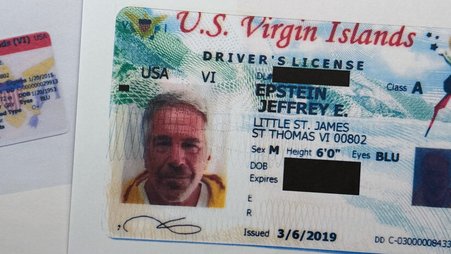This is the first in a series of profiles of independent journalists who use public records to hold local governments accountable. The second, about Hannah Bassett's investigation of Medicaid fraud in Arizona, is here.
Lisa Pickoff-White fell in love with — and experienced the hurdles of — records reporting as a journalism graduate student at the University of California, Berkeley, where she participated in a project to investigate and report on the 2007 murder of Oakland Post editor Chauncey Bailey.
The effort brought together newsrooms to finish Bailey’s reporting on violence and fraud in a San Francisco bakery, which the investigation revealed had long-standing ties with local politicians and police.
“That experience really opened up my eyes to both records reporting and data journalism,” Pickoff-White said. “I realized there was this whole other side of journalism that, even though I had been working in it, that I didn't even really know anything about, and it was something that I was excited to pursue. I immediately was like, ‘This is grueling, difficult work, but it’s work I really want to do.’”
Now, 15 years later, that training continues to pay off, as Pickoff-White’s California Reporting Project sends out more than 700 public records requests to law enforcement agencies each year. In fact, since its inception in 2018, the project has surpassed 3,500 records requests. Pickoff-White, the project’s director, doesn't plan on slowing down.
“One of the things that draws me to journalism is those known unknowns,” Pickoff-White said. “Like, making visible what is hard to see. Being able to connect the dots. I think systems reporting is one of the things that I love about reporting and records research. It allows you to take people’s lived experiences, back it up with data and say, this is occurring and it is occurring more than once, and to give people some context on why it might be occurring as well.”
Lisa Pickoff-WhiteSystems reporting "allows you to take people’s lived experiences, back it up with data and say, this is occurring and it is occurring more than once, and to give people some context."
The California Reporting Project was born after the state’s Right to Know Act was enacted in 2018, allowing the public to request police reports and reports related to law enforcement’s use of violence and other kinds of misconduct. Hosted by UC Berkeley’s Investigative Reporting Program, the project is a collaborative database with records shared from reporters at 40 news organizations across the state.
“One of the real successes of this project is we’ve already published more than 100 stories out of these records,” Pickoff-White said. “Ever since we started sending requests on January 1, 2019, people have had access to these records and have been able to report out of them. And that’s really important to me, because these are public records.”
With newsrooms increasingly cash-strapped, the cost and time it takes to make and appeal public records requests can be prohibitive. The reporting project’s database collects records obtained from records requests. It also monitors pending requests. That way, reporters can avoid duplicating efforts and instead rely on materials other requesters obtain to use for their own coverage.
“It’s really time-consuming and hard and can cost a lot to make a record request,” Pickoff-White said. “I really encourage other reporters to come together to collaborate on this, because together, we’re stronger. If you could find a way to work with people to invest in the time up front pays dividends in the end.”





